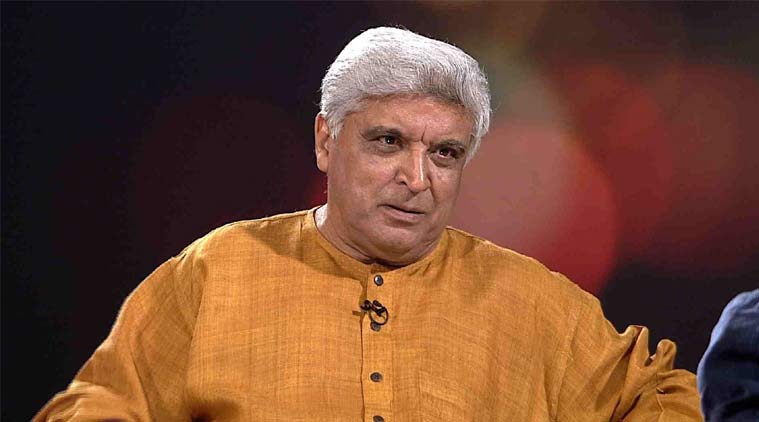Films will mature and society will view things from a new perspective-Javed Akhtar
8:24 AM
Posted by Fenil Seta

Mihir Bhanage (BOMBAY TIMES; March 6, 2022)
“Jab tak koi nuksaan na ho, tab tak honest rehna chahiye,” quipped writer-poet Javed Akhtar, when asked about his nonchalant responses to questions on a variety of topics. Akhtar, who was in Pune for the ongoing Pune International Film Festival (PIFF), was at his witty best as he spoke about films, their impact on society, and the effect of OTT platforms on showbiz.
In a session moderated by Dr Jabbar Patel, veteran filmmaker and chairman and director of the festival, Akhtar took a trip down memory lane as he recalled his journey in Hindi cinema. “Guru Dutt was the reason I came to Mumbai at the age of 19. I wanted to be a director, but ended up being a writer. When people in my college would ask why I was studying in college when I wanted to get in the film industry, I would tell them – ‘So that when a film magazine or newspaper publishes my bio-data, the academics column would say graduate’,” he said.
Akhtar, who counts Mother India, Ganga Jumna, Pyaasa, Jaal, Shree 420 and Guide among his favourite films, said that storytelling and music have been a part of Indian culture since forever. “If any Indian tells you that they don’t like films, you should cross-check their passport,” laughed Akhtar, adding, “Even before films, we had plays. Watching a story unfold in front of your eyes, with music accompanying it is something generations of Indians have grown up on.”
For someone who has been in the industry for over five decades, the veteran writer has seen the evolution of Indian cinema. Credited with penning the screenplay of Prakash Mehra’s Zanjeer, along with Salim Khan, Akhtar shared that the ‘Angry Young Man’ tag that got associated with Amitabh Bachchan wasn’t a deliberate attempt on their part as writers.
He further added, “A writer should write as part of society, not as an observer sitting on a pedestal and dishing out sermons. All works of fiction in the world are autobiographical to some extent because the writer draws from personal experiences to create a story that resonates with others, too.”
While earlier there was a clear demarcation between popular and parallel or arthouse cinema in the Hindi film industry, that line has been blurring in recent times. Akhtar said, “For the current generation, the new-age filmmakers, the journey is about finding themselves or the essence of India. This is one of the reasons why stories from small towns of the country are increasingly coming forth.”
He added, “Today, people want to watch films like Article 15 or Kaala. The younger generation is mature enough to understand these topics. I’m hopeful that our films will further mature from their views and society will have the moral courage to look at things that are considered embarrassing and hurting from a new perspective.”
With the popularity of OTT platforms, there’s been a shift in the way viewers consume content. When asked how he sees this from a writer’s perspective, Akhtar said, “OTT is a fabulous zone for not just writers, but makers as well. Stories or subjects that don’t fit the feature film format are being told via web series. These platforms offer freedom of time and are breaking the language barrier”
This entry was posted on October 4, 2009 at 12:14 pm, and is filed under
Article 15,
Guru Dutt,
Interviews,
Javed Akhtar,
Javed Akhtar interview,
Kaala
. Follow any responses to this post through RSS. You can leave a response, or trackback from your own site.
Subscribe to:
Post Comments (Atom)
Post a Comment